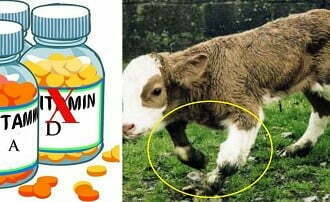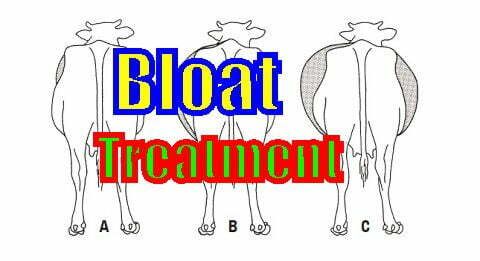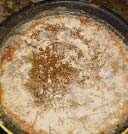Vitamins for cows are very important. Although vitamins are needed in small amounts, they must be present or available. This vitamin functions as a supporting nutrient that can make metabolism, production, growth and reproduction run normally.
In cattle, the problem of vitamins does not get more attention. In contrast to feed. Maybe because the portions are not too big. But it should be important.
Or maybe because in addition to vitamins A, D, E, cows can make other types of vitamins in their own bodies.
Several types of vitamins are needed by livestock and must be present in the ration or feed of the cow.
Usually, the vitamins needed for the cow’s immune system and the growth of vitamins A, B, D and K can be given in the form of injections or additions to the feed.
What vitamins do cows need?
Vitamins are micronutrients needed by all living things in small amounts to support normal body metabolic activities, growth, reproduction and production.
Cows need different types of vitamins in certain amounts. The types of vitamins needed by cows are vitamins A, D, E, B complex, C and K.
In addition to A, D and E, cows can produce (synthesis) their own vitamins. This is due to the help of bacterial activity in the rumen.
But for vitamins A, D and E the administration must be from outside the cow’s body. Vitamins can be sourced from feed or given vitamin products on the market.
Each of these vitamins is needed by cows because they work in different ways.
Vitamin A plays a more important role in regulating cell and tissue growth and differentiation.
For Vitamin B complex acts as a coenzyme and precursor.
While Vitamin D acts more like a hormone that regulates mineral metabolism for bones and other organs.
Vitamins C and E are more likely to act as antioxidants to protect against disease.
Function of Vitamins for cows
Vitamin A
The function of vitamin A in cows is to prevent eye health problems, improve the immune system, also plays an important role in cell growth & development and maintain healthy skin.
Vitamin A is widely available in fresh forage feed. Because the original compound, namely carotene, is widely found in forage. Almost all forage. But in still fresh condition (green).
Forage that is still fresh and young is a good source of carotene. But over time this carotene will decrease in conditions of forage that are getting older and dry.
For example, rice straw that has been piled up for months, it’s carotene as a source of vitamin A has been much reduced.
So, if we have been feeding our cows with forage, we don’t have to worry about vitamin A deficiency.
The possibility of cows being deficient in vitamin A is the condition with dry hay and concentrate feed. But if the concentrate already contains vitamin A, then this is not a problem.
Therefore, it is necessary to pay attention to the packaging and nutritional content.
Symptoms of vitamin A deficiency
- The first symptom of vitamin A deficiency is the cow’s reduced ability to see at night. But how do you know if a cow is night blind? It must be difficult.
- Dull, rough and irregular hair direction. It could be, this sign is not only due to a lack of vitamin A.
- Advanced symptoms, the cow’s eyes will be watery.
- In young cattle, acute vitamin A deficiency can lead to blindness.
- Makes cows infertile, and in some cases can cause miscarriages in cows.
Vitamins for cows, B complex
Vitamin B complex consists of vitamins B1, B2, B5, B6, B7, B9 and B12.
This vitamin is most needed by cows. This vitamin plays an important role in:
- Cell metabolism.
- Carry out the functions of the cow’s body
- Producing the energy that cows need in the body and activities
- Helps maintain healthy nerves and muscles in the cow’s body
- Helping the cow’s body to make and use protein.
This vitamin can be produced by cows. In general, ruminants such as goats, sheep and rabbits can produce this B vitamin.
Therefore, the risk for vitamin B deficiency is very small. Except for cows that lack the mineral cobalt (co) in their rations.
So, why add and inject livestock with vitamin B complex again?
Too much of this B vitamin is also not good. Excess amounts will be excreted by livestock through urine.
If the cow does not show symptoms of vitamin B complex deficiency, you should not be given additional vitamin B.
Lack of vitamin B in cows will cause the following:
- Indigestion.
- Decreased appetite and
- Cows lose weight.
Vitamin D
Vitamin D is needed by cows because it plays an important role in calcium and phosphorus metabolism. This vitamin can be fulfilled by cows because of the synthesis of vitamin D in the body. However, beef cattle raised in cages often suffer from vitamin D deficiency because they do not receive UV light from the sun.
Feed given to cows must contain at least 125 IU of vitamin D per pound or 276 IU/kg ration. Vitamin D deficiency will cause cows to develop bone disease.
Like its role, vitamin D regulates mineral metabolism in the cow’s body. Most of the mineral needs are in the bones and teeth.
The main sources of vitamin D are green food and sunlight and buy.
Vitamin D deficiency in cows more specifically will result in:
- Bone and tooth growth is not optimal.
Rickets. Rickets is an abnormal growth of bones due to an imbalance between the absorption of calcium and phosphorus.
Vitamin E
Vitamin E in cows is an anti-oxidant that can protect cells from damage and is important for red blood cell health.
As an anti-oxidant, cows need vitamin E up to 15-60 IU per kilogram of dry matter ration, or 33 IU – 132 IU per kg of ration.
Naturally, the presence of vitamin E is sufficient from natural feed. Deficiency of this vitamin in calves causes white muscle disease to vitamin A deficiency.
The main source of vitamin E is green feed with not too old age.
Old and dried feed will eliminate its source of vitamin E.
But storage by silage, the decrease in vitamin E content is not too large.
Vitamin E deficiency will cause:
- Disorders of the female cow’s reproductive system, disorders of the nerves and muscles.
- Muscular dystrophy. Muscular dystrophy is the weakening of muscle tissue. If the heart muscle is attacked, the cow dies. If the skeletal muscles are attacked, the growth and shape of the cow will be abnormal.
Vitamin K
Vitamin K plays an important role in the blood clotting process. When a cow is injured, the blood will not flow profusely because the blood will immediately clot and close the open blood vessels.
Just like in humans.
The source of this vitamin K is in forage. However, cows can also produce their own in the body.
Regarding its relationship with digestion, not much is known.
Vitamins for cows, C
It is not clear what the function and risks of this vitamin deficiency are in cows. While this can still be ignored.
Ok, those were some important vitamins that must enter the cow’s body. Everything is important and must be in proportion.
A proportional amount will make livestock production more effective. Excess is certainly not good because excess vitamins will be removed through feces.
The average source of the above vitamins can be obtained from feed. Feed that is still fresh (green).
Dry feed has reduced vitamin content.
Hope it is useful.
Reference
Kearl, Leonard C., “Nutrient Requirements of Ruminants in Developing Countries” (1982). All Graduate Theses and Dissertations. Papers 4183.
 JOYNIM FARM Goat Farming, Cattle Farm, Laying Hens, Quail Farm, Gardening
JOYNIM FARM Goat Farming, Cattle Farm, Laying Hens, Quail Farm, Gardening



